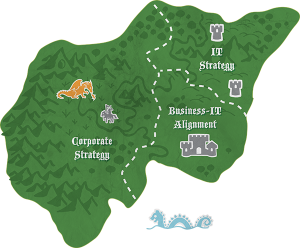“However beautiful the strategy, you should occasionally look at the results.” – Winston Churchill
Hurricane Sandy, one of the most destructive hurricanes to hit the eastern United States came ashore in October 2012. Airbnb, an online matchmaker for travel rentals, was one of several organizations that immediately put big data to work – e.g., social and geo-location – to provide timely assistance to hurricane victims.
In partnership with the New York City government, Airbnb was able to connect over 1,400 families, whose homes had been washed out by the storm, with free temporary housing provided by Airbnb community members. These strange bedfellows – big data, the media, and open hearts – proved to be a powerful combination for this community in distress.
If we look at this story from a data standpoint, it reminds us how valuable data can be. Data is more than just a bunch of text, files, transactions, images, and digital 1’s and 0’s filling up our data centers and smartphones. When treated as a corporate asset, data can be used to help achieve our corporate strategic goals. Jill Dyché, Vice President of SAS Best Practices, tells executives: “A company’s ability to use information strategically is directly correlated to the degree to which the data is governed and managed.”

A Big Data Best Practice for Strategy
With big data technology, it’s becoming easier to process and integrate more and varied types of “big” data – like social, location, machine, and open – with existing traditional data. This puts marketers into a much better position to use data strategically – not only to achieve their own corporate goals, but more holistically, to achieve community and global goals.
That’s what happened with Airbnb. They saw an immediate opportunity to help the community with the data they had access to – internally and externally – and they pursued this opportunity passionately with their members. Don’t be afraid to ask the question: “What more could we be doing with the data now available to us?” You never know what it could do for your business.
Airbnb’s Business is Data
Like Facebook, Airbnb’s primary corporate asset is data—data that comes from the hosts and the travelers they match up. It has no physical inventory. So as its data (hosts + travelers) increases, so does its business. And like any manufacturing company, Airbnb needs to keep a healthy balance and tension between its supply and demand—and make it easy to match up hosts and travelers.
As mentioned earlier, Airbnb’s ability to use their data strategically is directly correlated to the degree in which they govern and manage it. Airbnb continues to build safeguards into its site and mobile app to protect both the host and the traveler. The governance and management of the data provided by both parties—before, during, and after a reservation—is what drives the company forward. Airbnb would lose control of this data at its peril.
Key Takeaways for Marketers
- When it comes to data strategy, don’t differentiate between big and traditional data. It’s all data.
- Data, regardless of size, is a strategic corporate asset. Govern it. Manage it. Treat it as if it were your own.
- Keep an eye on the Dragon in the Corporate Strategy territory on the island. It might have your Knight for lunch.
- Accept big data’s invitation to imagine again. Just like Airbnb did in 2012. Don’t limit yourself.
This is the final post in a 10-post series, “A marketer’s journey through the Big Data Archipelago.” This series explored 10 key best practices for big data and why marketers should care.

1 Comment
Pingback: The Final Stop in the Big Data Archipelago Journey: The Strategy Isle | The Cyberista Says